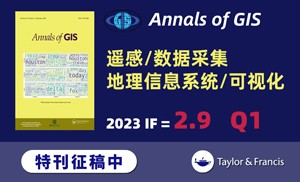当前位置:
X-MOL 学术
›
Southern Economic Journal
›
论文详情
Our official English website, www.x-mol.net, welcomes your
feedback! (Note: you will need to create a separate account there.)
Economic lessons for COVID‐19 pandemic policies
Southern Economic Journal ( IF 1.8 ) Pub Date : 2021-03-04 , DOI: 10.1002/soej.12492 W Kip Viscusi 1
Southern Economic Journal ( IF 1.8 ) Pub Date : 2021-03-04 , DOI: 10.1002/soej.12492 W Kip Viscusi 1
Affiliation
The COVID‐19 pandemic poses novel health issues. However, the benefits and costs of the pandemic and policies to address it have a familiar economic structure. Chief among the health‐related benefits are the monetized values of the U.S. mortality costs of $3.9 trillion in 2020. The combined U.S. mortality and morbidity costs are $5.5–5.9 trillion. Global mortality costs in 2020 total $10.1 trillion. The skewed age distribution of COVID‐19 illnesses has stimulated increased advocacy of downward adjustments in the value of a statistical life (VSL) for older people. This article examines the role of age for policy analysis generally and for the rationing of scarce medical treatments, such as ventilators. Mortality risk reduction benefits should be based on the reduced probability of death multiplied by the pertinent VSL. Effective communication of risks to foster precautions hinges on the credibility of the information source, which public officials have jeopardized. Efficient control of risks imposes limits on personal freedoms to foster health improvements.
中文翻译:

COVID-19 大流行政策的经济教训
COVID-19 大流行带来了新的健康问题。但是,大流行的收益和成本以及应对它的政策具有熟悉的经济结构。与健康相关的主要收益是 2020 年美国死亡率成本的货币化价值为 3.9 万亿美元。美国死亡率和发病率的总成本为 5.5-5.9 万亿美元。2020 年全球死亡成本总计 10.1 万亿美元。COVID-19 疾病的倾斜年龄分布刺激了对老年人统计寿命 (VSL) 价值向下调整的倡导。本文研究了年龄在一般政策分析和稀缺医疗(如呼吸机)配给中的作用。降低死亡风险的益处应基于降低的死亡概率乘以相关的 VSL。有效沟通风险以促进预防措施取决于信息来源的可信度,而公职人员已经危及了信息来源的可信度。有效控制风险会限制个人自由以促进健康改善。
更新日期:2021-04-09
中文翻译:

COVID-19 大流行政策的经济教训
COVID-19 大流行带来了新的健康问题。但是,大流行的收益和成本以及应对它的政策具有熟悉的经济结构。与健康相关的主要收益是 2020 年美国死亡率成本的货币化价值为 3.9 万亿美元。美国死亡率和发病率的总成本为 5.5-5.9 万亿美元。2020 年全球死亡成本总计 10.1 万亿美元。COVID-19 疾病的倾斜年龄分布刺激了对老年人统计寿命 (VSL) 价值向下调整的倡导。本文研究了年龄在一般政策分析和稀缺医疗(如呼吸机)配给中的作用。降低死亡风险的益处应基于降低的死亡概率乘以相关的 VSL。有效沟通风险以促进预防措施取决于信息来源的可信度,而公职人员已经危及了信息来源的可信度。有效控制风险会限制个人自由以促进健康改善。









































 京公网安备 11010802027423号
京公网安备 11010802027423号